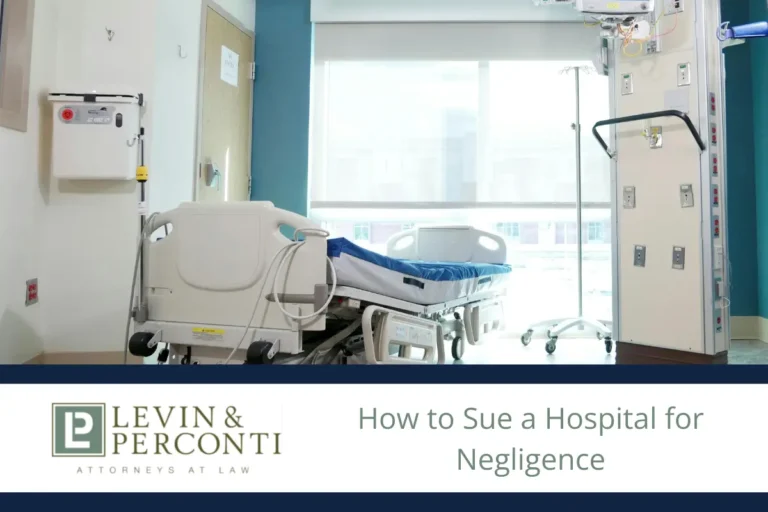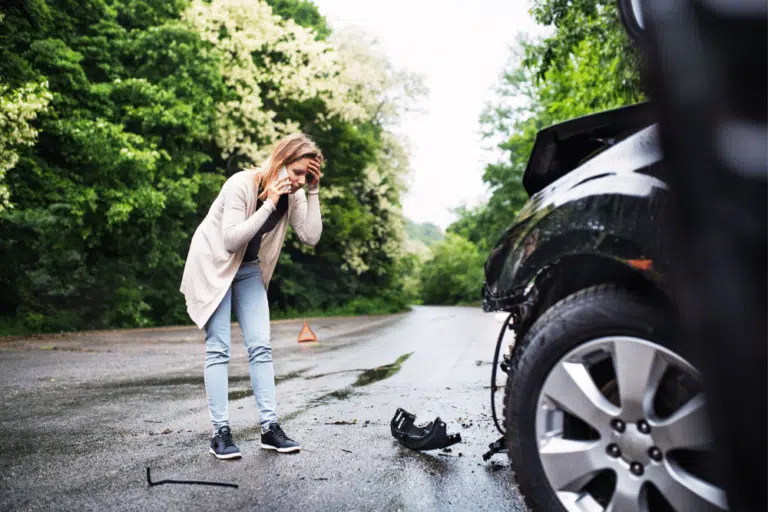Blog
Medical Malpractice

How to Sue a Hospital for Negligence
When you are hospitalized, you place your health and life in the hands of multiple practitioners with the expectation of receiving competent care. Whether you

When Is An Insulin Overdose Considered Medical Malpractice?
Insulin overdose can cause severe hypoglycemia—a dangerous drop in blood sugar that can lead to permanent brain injuries, organ damage, coma, and death. Insulin medication

When Is IV Infiltration Considered Medical Malpractice?
IV infiltration occurs when fluid delivered by an IV line into the patient’s vein leaks into the surrounding tissue. Some medications, including chemotherapy drugs, can
Birth Injury

Can You Sue A Doctor for Newborn Hypoglycemia?
Yes, you may be able to sue a doctor for your newborn’s hypoglycemia if they were negligent in failing to prevent or treat it. Medical

From Birth Injury to Paralympic Aspirations: Yehonatan Levi’s Inspiring Journey to the 2028 Games
The story of Yehonatan Levi is a testament to the power of dedication and motivation. Despite facing the challenges of disability, Yehonatan has persevered with

Attorney Explains APGAR Scores for Birth Injury Evaluation
The Apgar score is a rapid assessment of your baby’s health following birth to determine if intervention is needed. Although not used to diagnose birth
Personal Injury

Medline Industries Recalls Adult Bed Rails
Levin & Perconti Address the Medline Bed Rail Recall: Ensuring Safety and Advocating for Elder Rights Medline Industries has announced a recall of approximately 1.5

Arlington Heights Nurse Fired
ARLINGTON HEIGHTS – MAY 23, 2024 – In a recent incident that shocked the Arlington Heights community, a school nurse at Westgate Elementary School was

Levin & Perconti Reflect on the Tragic School Bus Collision in Western Illinois
RUSHVILLE, IL – The community of Rushville, Illinois, is devastated after a collision involving a school bus and a semi-truck killed five people, including three
Nursing Home Abuse

9 Steps To Take If You Suspect Nursing Home Abuse
Nursing home residents and their families put their trust in their caregivers and staff to meet their needs and keep them safe. Unfortunately, many nursing

Medline Industries Recalls Adult Bed Rails
Levin & Perconti Address the Medline Bed Rail Recall: Ensuring Safety and Advocating for Elder Rights Medline Industries has announced a recall of approximately 1.5

Average Nursing Home Neglect Settlement
The average nursing home neglect settlement is $245,559. However, nursing home neglect settlement amounts can vary widely based on the severity of your injuries and the weight of the evidence against the nursing home. Our nationally recognized nursing home abuse lawyers have settled many nursing home neglect cases for $1 million and more.
Motor Vehicle Accidents

Rules Related To Illinois’ Auto Insurance
Have you or a loved one been involved in a car accident? If so, you may wonder how auto insurance comes into play. In brief,

A Game Plan to Prevent Drinking and Driving Accidents This Holiday Season
The holiday season is in full swing, and for many people, this is one of the most enjoyable times of the year. Over the coming

Hit and Run Accidents and What to Do
A couple weeks ago, two vehicles traveling on I-64 near mile marker 43.5, were involved in an accident. A Chevy truck rear-ended a Toyota Camry, pushing
Disclaimer
The purpose of this blog is to deliver news and information that is relevant to our areas of practice. The news and information reported on this blog represent the legal actions of attorneys throughout the United States. Our firm does not claim to represent plaintiffs in all of the lawsuits, settlements, and jury verdicts reported, only those noted as Levin & Perconti cases.
Contact Us

Free Consultation

Available 24/7

No Fee Unless We Win
Fill out the contact form or call us at 877-374-1417 to schedule your free consultation.
"*" indicates required fields




